So, what is James Bond up to this time? Well, over the years Bond movie titles often had very little to do with the source material they are borrowed from, for example, the film The Living Daylights was taken from an Ian Fleming short of the same name, where Bond is sent to kill a KGB assassin to only at the last minute shoot the assassin’s gun instead when he realizes the killer is a woman – nice to see his sexism at play there – but that was only part of the pre-credit sequence for the film nothing that followed came from the works of Ian Flemming. Now, in the case of A View to a Kill, the film has literally nothing to do with the short story “From a View to a Kill” which dealt with Bond investigating the murder of a motorcycle dispatch-rider and the theft of top-secret documents. The pre-credit sequence of this movie does have Bond (Roger Moore) recovering a microchip from a dead British agent, and I guess agent 003 could have been a courier, but he’s never mentioned again nor does Bond ever investigate his death, instead the microchip leads Bond to government contractor Zorin Industries, whose EMP shielded microchip should not have ended up in Russian hands.
Note: Bond escapes Siberia by way of a small sub disguised as an iceberg that Q-Branch had, for some reason, tricked out to double as a sex pad. I’m guessing James Bond had plenty of pull with the MI6 design team.
The plot of A View to a Kill – and I use the term “plot” loosely here – deals with billionaire Max Zorin (Christopher Walken) and his plans to create a worldwide microchip monopoly by destroying California's Silicon Valley, and if this diabolical scheme seems a tad familiar that’s because the Bond film Goldfinger had a very similar plot, where Goldfinger's villainous plan was to contaminate the Fort Knox gold reserve and thus make his own supply of gold worth that much more. Of course, recycling plots is nothing new for Hollywood, it being biggest cannibalistic enterprise on the planet, but the scheme that Max Zorin proposes isn’t so much evil as it is ludicrous, impractical, and also wouldn’t work.
Almost as ludicrous as having this be your get-away vehicle.
Why Zorin's plan would fail:• By the mid-80s Silicon Valley was not a center of manufacturing of semiconductors, most of the manufacturing was in Asia by this time, while Silicon Valley had moved to become the center for innovation and investment in the tech sector. Destroying it via earthquake would also destroy the companies that would be purchasing Zorin's microchips. That is not a good business model.
• With Bond and MI6 openly investigating Zorin Industries – Bond being the worst secret agent by tipping his hand and identity from the outset – so if Zorin’s planned destruction of Silicon Valley went forward Zorin's arrest and prosecution would be virtual certainties along with the seizure of all of his available assets. Once Zorin discovered the British government was investigating him his “Main Strike” plan should have been put on hold indefinitely.
• Even if Bond didn’t tip off the United States government to what Max Zorin was doing the detonations used to trigger the explosions in the mine would look far from natural, and being the mines involved were all owned by Zorin Industries, and that bullet-riddled Zorin employees would eventually surface, there is no way the authorities wouldn’t be able to trace the earthquake to Zorin.
• If, despite all this, Zorin went forward with his plan to drain the San Andreas Reservoir to flood Silicon Valley it still wouldn’t have worked, as the volume of water would have long dissipated and soaked into the ground along the more than 35-mile stretch to the Valley.
• Also, the idea that a bomb of any magnitude could create an earthquake affecting the San Andreas Fault is totally ludicrous. Zorin's bomb would have an infinitesimal, negligible effect on causing an earthquake in that zone. That’s just science.
Question: Is there a company that makes models and displays for supervillains?
Thus the plot of A View to a Kill hinges on villain’s plan that makes no sense financially, criminally or even scientifically, which, to be fair, is certainly no a deal-breaker when it comes to the fantasy world of James Bond, but it still comes across as rather lazy and trite screenwriting and not something you would have found in any of Ian Flemings books or short stories. When creating a Bond villain’s evil plan it’s important to construct a scheme that at least makes more sense than Lex Luthor’s plan to drop California into the ocean as part of a real estate scheme.
"I'm going to rename Silicone Valley Otisburg.
If we set aside the preposterous nature of Zorin’s diabolical plan we are still left with several other major issues with the movie, ranging from serious structural flaws with the script to the poorly written characters that populate it. After the exciting Beach Boys pre-credit sequences we find Bond and company travelling to the Ascot Racecourse to observe Max Zorin, whose horses have been winning despite their poor bloodlines, and this leads to James teaming up with Sir Godfrey Tibbett (Patrick Macnee), a racehorse trainer and MI6 agent who believes that Zorin has been using some form of undetectable designer steroid on his horses. And what does Zorin’s cheating at horse racing have to do with his plot to create a worldwide microchip monopoly, you ask? Absolutely nothing, that’s what. All this does is allow the filmmakers to take us on a magical tour of the historic Château de Chantilly, where a mad Duke built awesome stables because he believed he was going to be reincarnated as a donkey. This is a gorgeous location, and the history behind the place is fascinating, it just doesn’t have anything to do with destroying Silicon Valley. We spend way too much time here with Bond and Tibbett bumbling around looking for clues. It’s only valid purpose is in the introduction of the latest Bond girl Stacey Sutton (Tanya Roberts), the granddaughter of an oil tycoon whose company was taken over by Zorin.“Yes, as a matter of fact, I am old enough to be your grandfather.”
It was around this time that Roger Moore came to the realization that he was older than the mothers of the girls he was bedding in these films – which didn’t stop the writers from having Bond sleep with four women in this outing – but where A View to a Kill stands out amongst the other films in the series is in its pitting Bond against Max Zorin's lover and chief henchwoman May Day (Grace Jones). Now, this isn’t the first time Bond has faced off against a femme fatale, Pussy Galore being the more notable, but the marketing campaign focused heavily on the idea that “Has James Bond finally met his match?” yet at no point does James Bond and May Day ever fight. Was it because the studio was against men hitting women? Doubtful as they had no issue with Sean Connery beating the lesbianism out of Honor Blackman in Goldfinger. Could it have been the idea of 58-year-old Roger Moore fighting a 37-year-old Grace Jones being ridiculous? That seems a little more plausible, but we may never know what boardroom discussions led to the decision to skip having Bond duke it out with the main henchwoman. Regardless, it did lead to Bond encountering her on a rather different playing field.Trivia Note: Roger Moore has since revealed that while shooting their love scene Grace Jones surprised all by revealing she was wearing a black strap-on penis.
While Grace Jones shines as the beautiful and dangerous May Day we also cannot overlook the immensely fun performance by Christopher Walken as the psychopathic industrialist Max Zorin, the product of a Nazi genetic experiment. Walken chews up the scenery with relish – also with ketchup, mustard and probably a little sauerkraut – and he is simply a joy to watch as he mercilessly guns down his own men, laughing all the while, making him if not one of the better Bond villains easily one of the more entertaining ones. Maybe his plan to gain a monopoly in the microchip market was never going to work, his employees were just too terrified to point out the stupidity of his scheme.
Stray Thoughts:
• May Day’s barbed butterfly weapon of assassination, while getting points for creativity, doesn’t seem any more effective than a sniper rifle would have been. It wasn’t a subtle attack, like poisoning the dude’s meal would have been, and she still had to flee the scene.
• Bond is aided by CIA agent Chuck Lee (David Yip), who is working undercover in San Francisco, but the CIA doesn’t tend to operate within the U.S. borders so Bond would most likely have gotten help from the FBI.
• Sir Godfrey Tibbett and Chuck Lee are booth garroted to death by May Day, her hiding in the backseat of their respective cars, but she never tries this technique against Bond. It just doesn’t pay to be friends with Bond, your life expectancy drops to about nil.
• Zorin tries to burn Bond and Stacey alive in an elevator and, for some reason, the fire causes the steel cables to snap as if they were made of yarn. Apparently, building codes are very different in San Francisco.
• Stacey is caught unawares by slow-moving blimp. *sigh* Worse is the fact that Zorin had no reason to grab her, fleeing the country immediately would have been his better option.
• We don’t get much in the way of Q gadgets in this movie but the remote-controlled surveillance device – which looks a bit like K9 from Doctor Who – is used to discover if Bond survived the mission. Q (Desmond Llewelyn) sends the device into Stacey’s house and discovers the two of them in the shower together. Question: Is there some reason why Q didn’t just knock on the door to see if they were home?
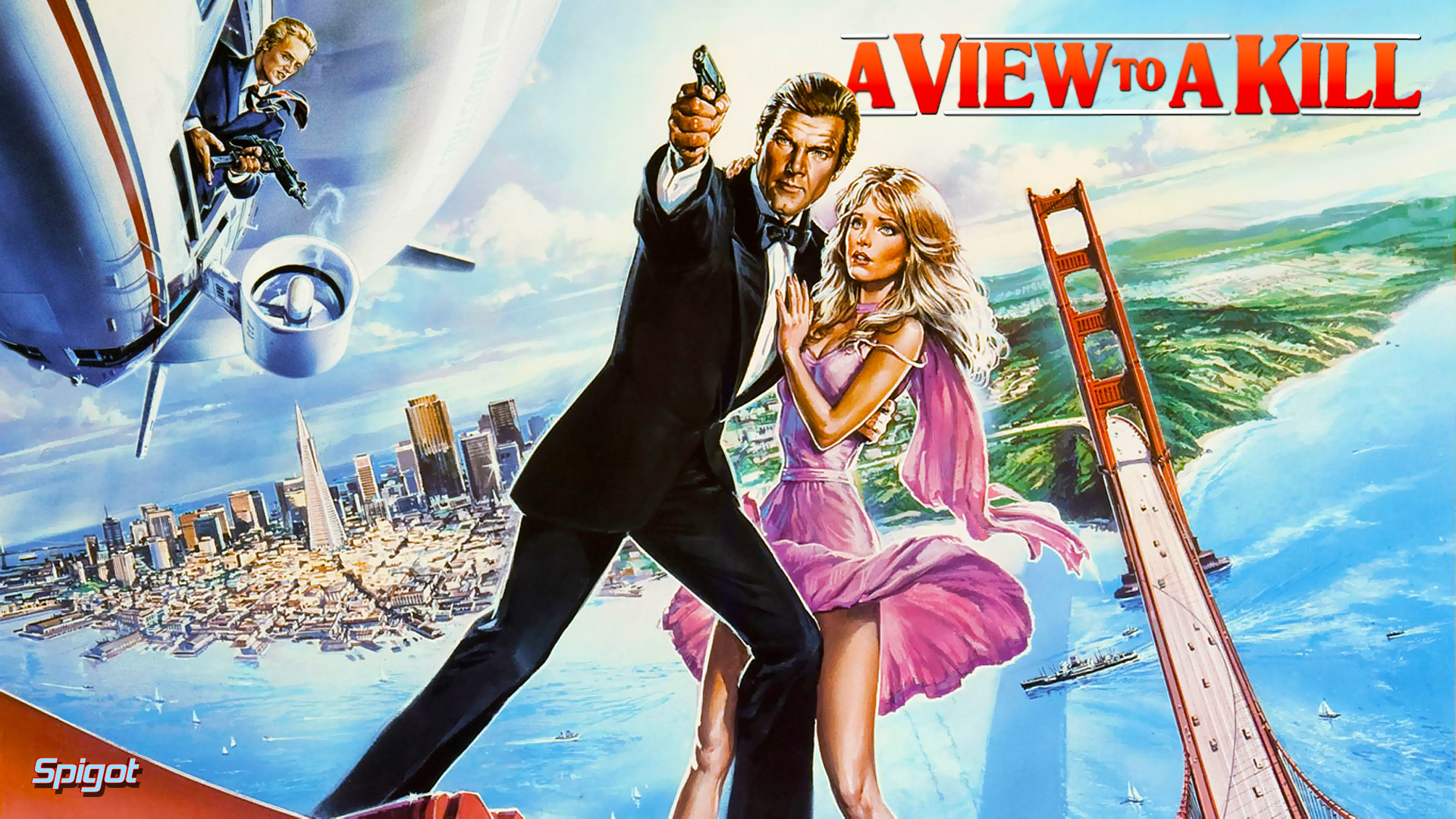
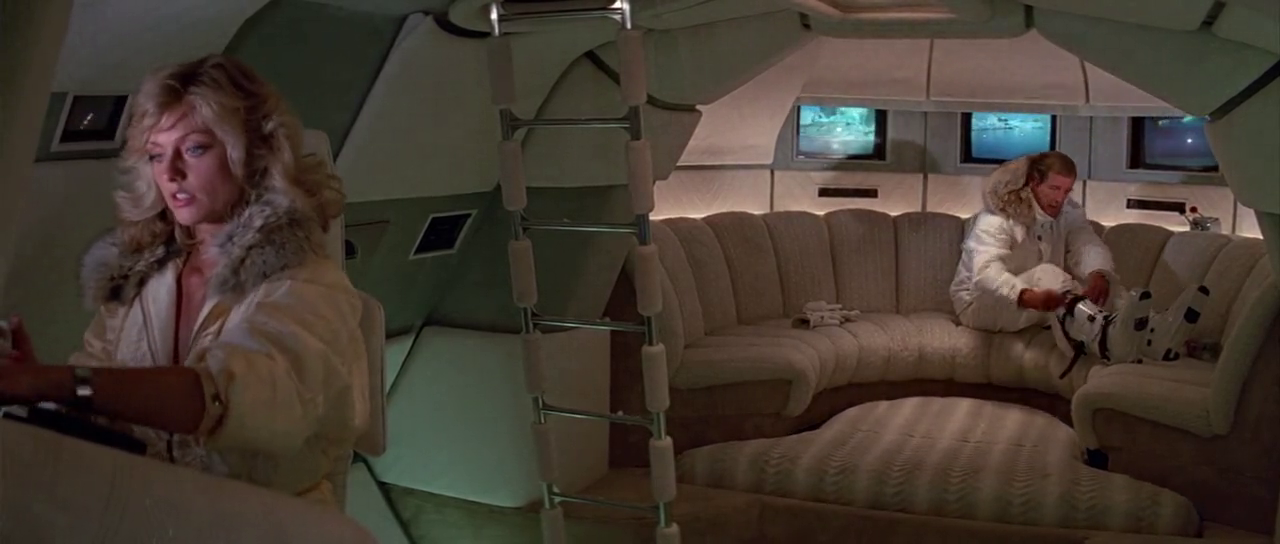
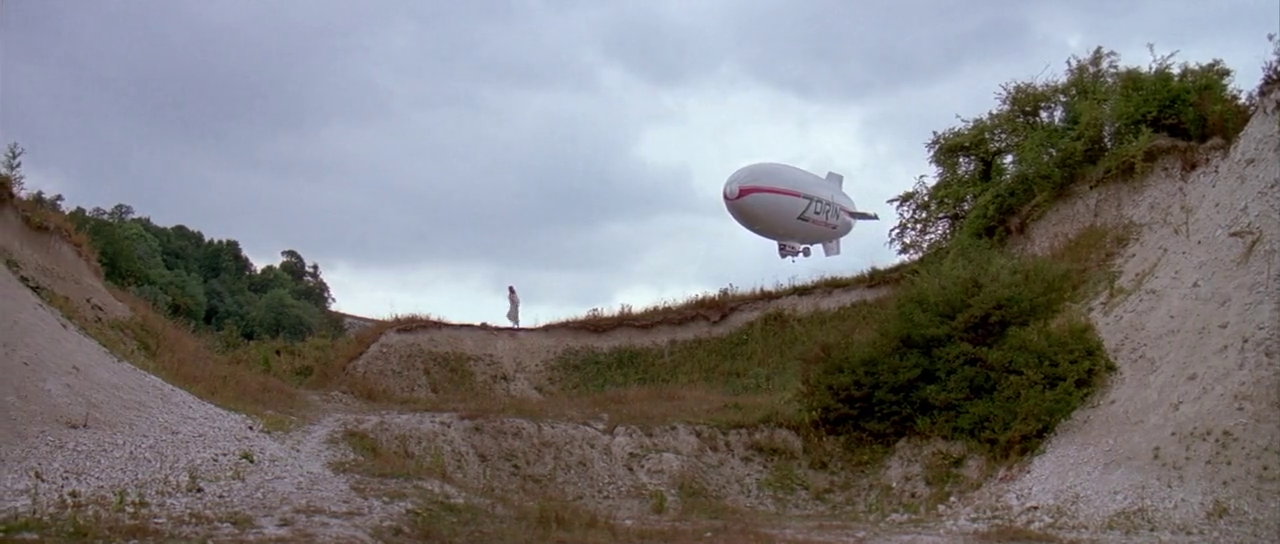
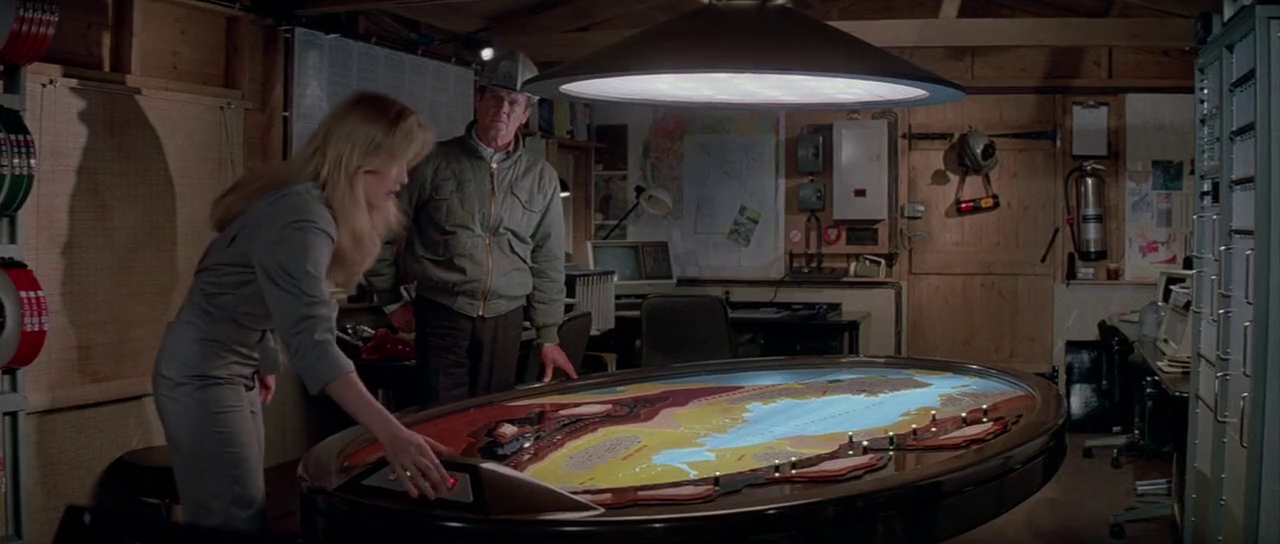
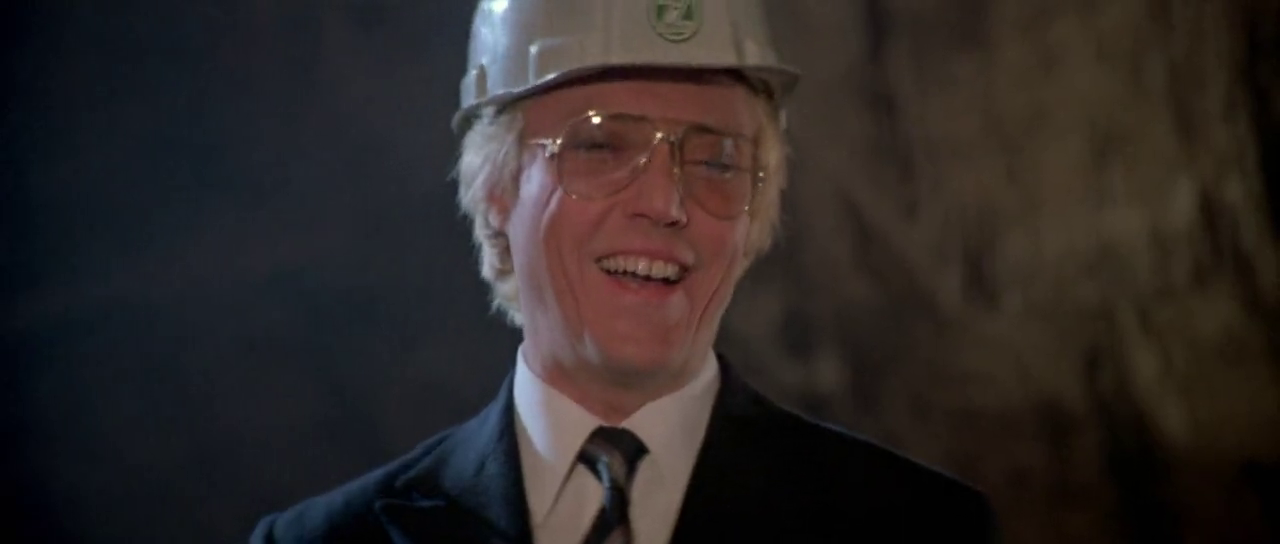
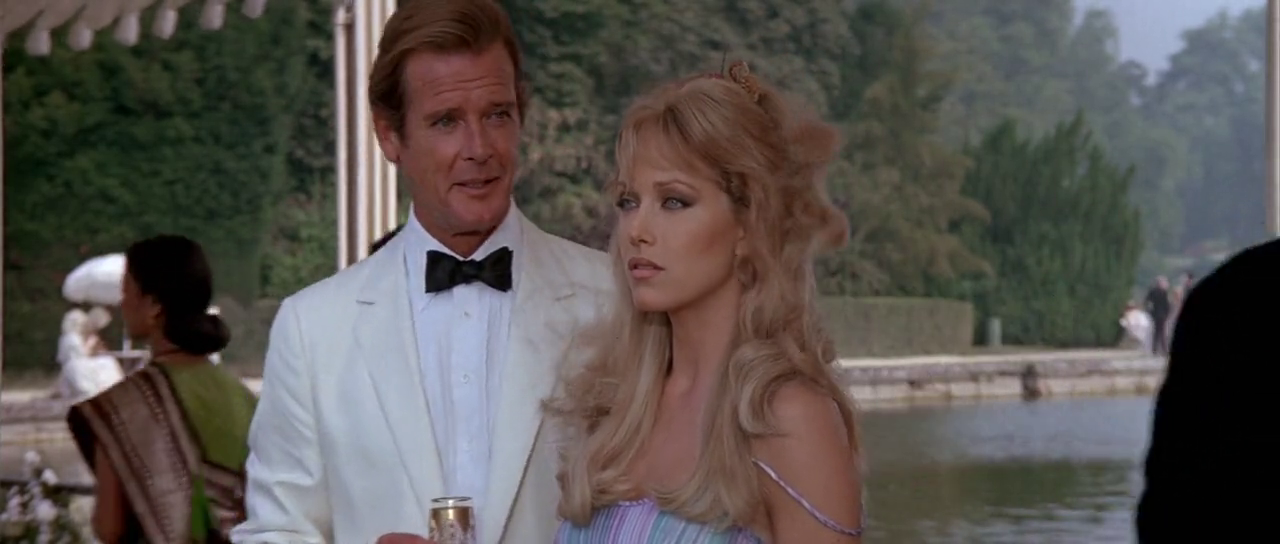
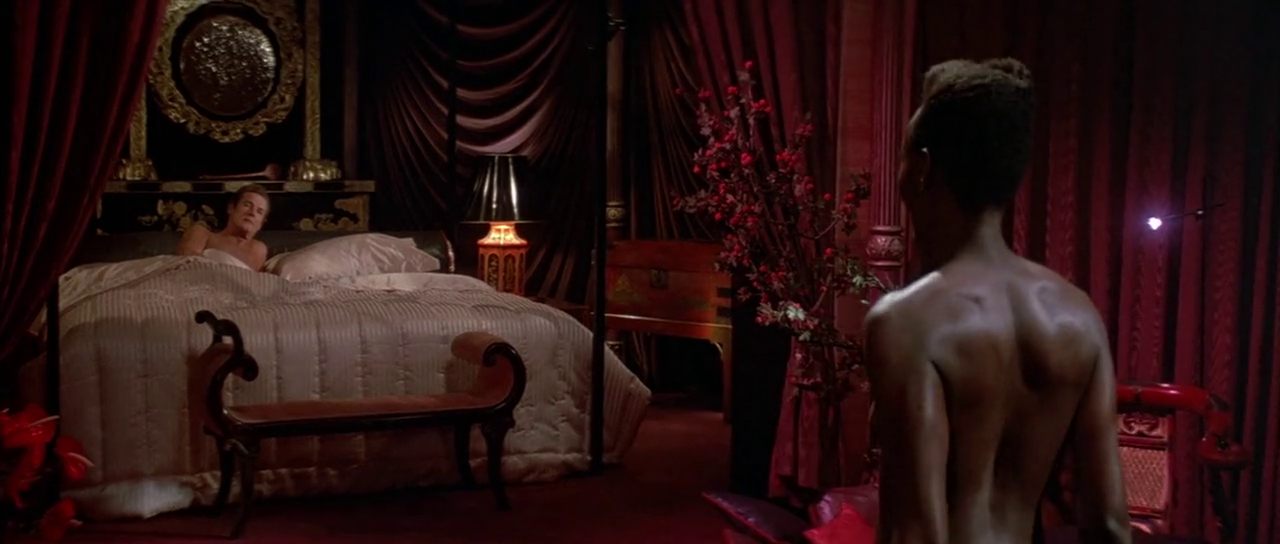
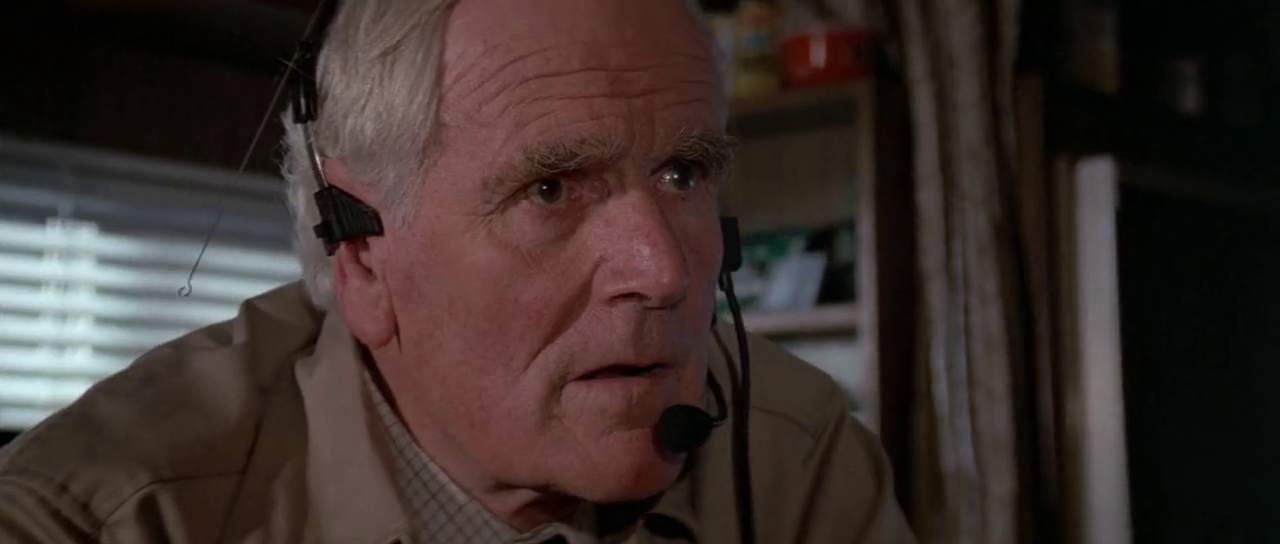
No comments:
Post a Comment